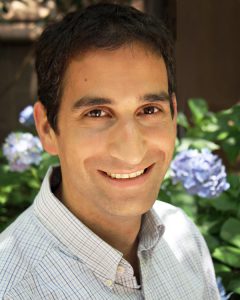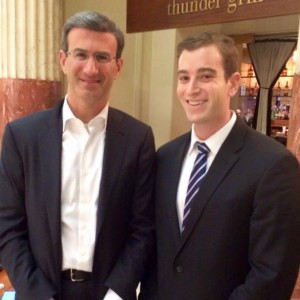Lily Kravetz is a third-grade lead teacher at Success Academy Fort Greene. She graduated in 2017 from Penn with a degree in Visual Studies from the College of Arts & Sciences.
How do kids see the world? I ask myself this question every day as a third grade teacher at Success Academy, a high-performing charter school network in New York City. To answer it, I draw on my experience as a Visual Studies major at Penn, where I researched how design affects people’s day-to-day experiences and perspectives.
At Penn, I had the opportunity to explore visual arts through an interdisciplinary lens, pairing my major requirements with education and child development classes. My thesis advisors, David Comberg and Dr. Margaret Souders, helped me bridge these interests in a project focused on designing adaptable spaces to suit the diverse sensory needs of children with Autism Spectrum Disorder. The insights I gained from this project inform the choices I make about my classroom today.
One of the main reasons why I pursued a teaching career at Success Academy was the network’s emphasis on aesthetics as a vital part of creating strong schools. In a world where design has come to the forefront of so many every industries, it often falls by the wayside in education. Success Academy is a leader in this regard. Rather than adding visual elements to an existing room, each classroom is designed from the ground up with a consideration of the student’s perspective. From the “Lotsa Dots” rug embedded in the carpet, to the colorful pastel walls, every part of the room serves a purpose. Teachers are then given the flexibility to arrange the seating, library, and academic “anchor charts” according to the needs of their students. As a result, the classrooms — and the hallways! — are organized, inviting, and conducive to learning.
Of course, there is much more to teaching and learning than the physical environment. While I have drawn on what I learned at Penn to design a stimulating and nurturing classroom, I have also honed a new set of skills working at Success. The expectations for both scholars and teachers are incredibly high here, and in my first year I had to learn how to press my scholars for academic excellence. I embraced our mission of providing a high-quality education to all students and worked on bolstering skills that would push my scholars forward. In particular, I focused on data analysis. Thanks to the rigor of the school, I have developed an unexpected level of expertise in using data to problem solve. Each day, I closely analyze assessment trends and student work to identify gaps, and strategize with my colleagues to close them.
Working as a teacher here, and helping my students grow and mature into brilliant, independent scholars, has been a challenging and fulfilling experience. I feel lucky to be a part of these kids’ journeys and to pursue a career that makes use of all the skills, knowledge, and insights I gained in my undergraduate education at Penn.




